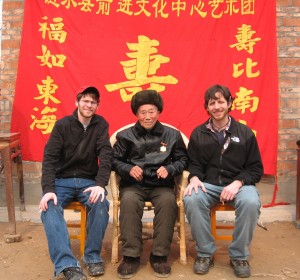Patricia Kushlis has a post in WhirledView on President Obama’s commitment to increase the number of U.S. students going to China from the current number of 20,000 to 100,000. Her excellent post is here. As she notes, this represents an enormous increase – in the number of US students in China and in the overall number of U.S. students studying abroad and that this increase
would place China as the single highest destination for American students studying abroad. The United Kingdom currently ranks number 1 with a total of 33,333 American students a year and Italy number 2. China is already the fifth most popular destination. Japan – number 11 on the IIE list of the most popular 25 – is the only other country in East Asia to attract a significant number of American students. India, the heart of the Subcontinent, meanwhile, comes in at 17. Overall, Europe is still by far the most popular destination – although the percentage of American students studying in regions elsewhere has climbed slightly since 2003.
She then asks several important questions: do Chinese universities have the capacity to handle this increase? Who will administer these programs in the U.S.? How will this be funded? (And I would add, what other programs will be pillaged to fund this?) These are all important questions and, as with most presidential visits with joint communiques, the details are worked out long after Air Force One has returned home.
While I applaud the adminsitration’s focus on increasing international educational experiences for American students (President Obama’s trip to Cairo also promised increases like this, although without the dramatic numbers), I urge all involved to ensure that this increase in the quantity of students is accompanied by an increase in the quality of the educational experience. What sorts of programs will these Americans students be part of? For a semester? A summer? The increasingly popular mid-winter break overseas experience? I am loathe to diminish the value of any international experience we can get U.S. students to sign up for – but I also hope that within the 100,000 students set to go to China that as many as possible stay for at least a semester, are enrolled in legitimate Chinese universities, take classes with Chinese students and – to the extent possible – live, eat and study alongside their Chinese classmates. In other words, we should work toward as deep an experience as possible and not settle for pref-fab programs in which Americans study only with other Americans and often have American professors; it’s like being in Ithaca, Austin or Ann Arbor with some really neat field trips and endless opportunities to buy souvenirs. It takes more than just being in another country to have a valuable international experience.

It is also my hope that this new focus on international education between the U.S. and China will include new and improved university partnerships, faculty/research exchanges, dual degree programs and increased opportunities for year-long graduate study. Overall, this could be a great opportunity for U.S universities and students, and allow for the U.S. government to support the development of new generations of students with China experience, some who will go on to develop real expertise. But the devil is in the details. Working toward deeper experiences while studying abroad requires real preparation: language proficiency, cross-cultural training and a little gumption to get out of one’s comfort zone. U.S. colleges and universities know how to do this, and some do it very well, but funding and support will be needed for these large numbers. And assistance will be needed from the State Department’s Bureau of Educational and Cultural Affairs as well as the public and cultural affairs officers in the US Embassy and consulates in China. Otherwise, the U.S. will be sending 80,000 new tourists to China posing as students.